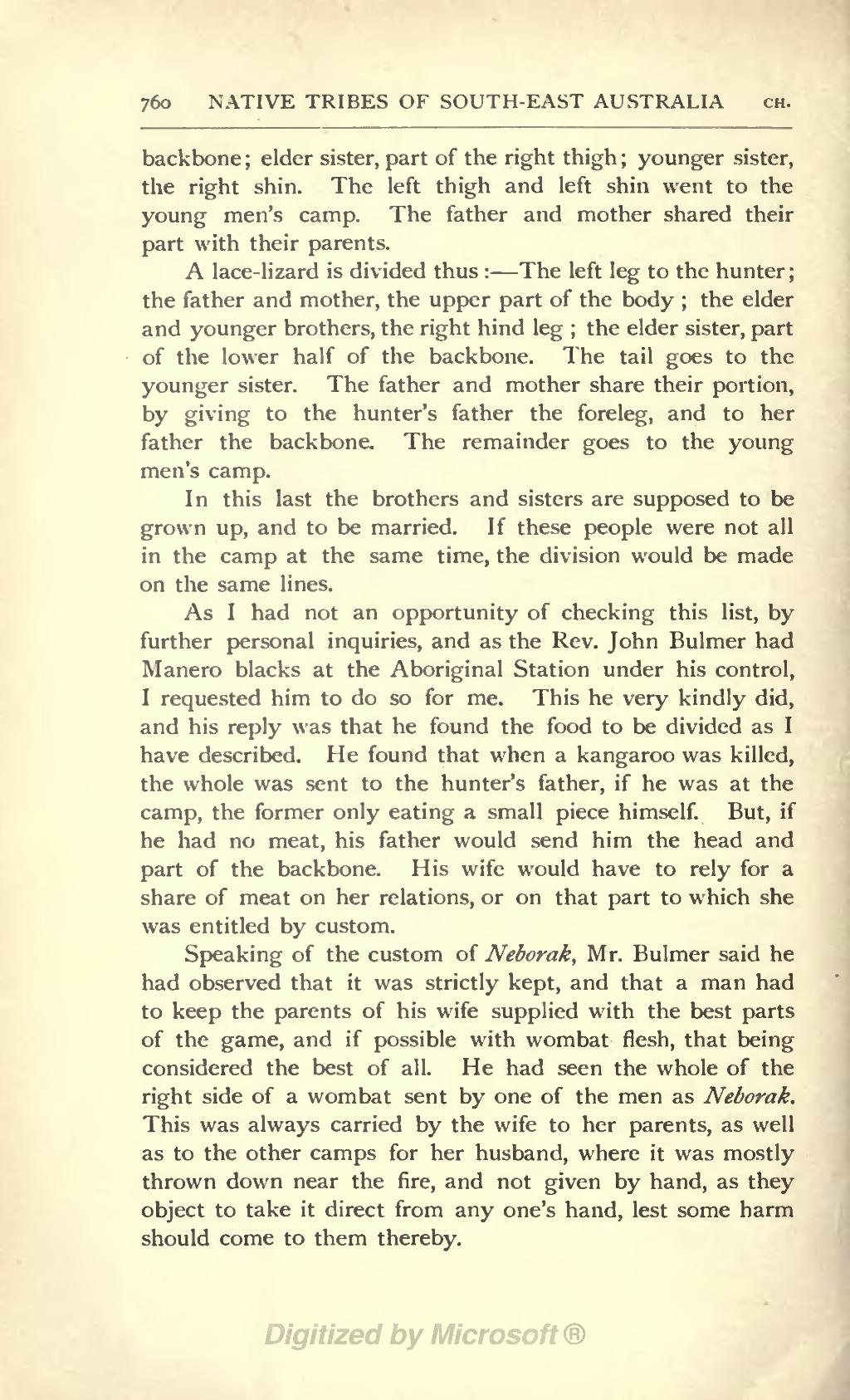backbone; elder sister, part of the right thigh; younger sister, the right shin. The left thigh and left shin went to the young men's camp. The father and mother shared their part with their parents.
A lace-lizard is divided thus:—The left leg to the hunter; the father and mother, the upper part of the body; the elder and younger brothers, the right hind leg; the elder sister, part of the lower half of the backbone. The tail goes to the younger sister. The father and mother share their portion, by giving to the hunter's father the foreleg, and to her father the backbone. The remainder goes to the young men's camp.
In this last the brothers and sisters are supposed to be grown up, and to be married. If these people were not all in the camp at the same time, the division would be made on the same lines.
As I had not an opportunity of checking this list, by further personal inquiries, and as the Rev. John Bulmer had Manero blacks at the Aboriginal Station under his control, I requested him to do so for me. This he very kindly did, and his reply was that he found the food to be divided as I have described. He found that when a kangaroo was killed, the whole was sent to the hunter's father, if he was at the camp, the former only eating a small piece himself. But, if he had no meat, his father would send him the head and part of the backbone. His wife would have to rely for a share of meat on her relations, or on that part to which she was entitled by custom.
Speaking of the custom of Neborak, Mr. Bulmer said he had observed that it was strictly kept, and that a man had to keep the parents of his wife supplied with the best parts of the game, and if possible with wombat flesh, that being considered the best of all. He had seen the whole of the right side of a wombat sent by one of the men as Neborak. This was always carried by the wife to her parents, as well as to the other camps for her husband, where it was mostly thrown down near the fire, and not given by hand, as they object to take it direct from any one's hand, lest some harm should come to them thereby.
